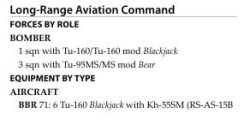Reuters publishes the full text of the document that Ukraine will take to Istanbul tomorrow.
I. Key principles of the Agreement and the negotiation process
• A complete and unconditional ceasefire in the air, on land and at sea as a necessary background and prerequisite for peace talks.
• Confidence-building measures – resolving humanitarian issues: unconditional return of all deported and illegally displaced persons, Ukrainian children. Exchange of all prisoners (on the principle of "all for all"). Release of all civilian hostages by Russia.
• Non-repetition of aggression: the goal of the negotiations is to restore a permanent basis for lasting peace and security and to ensure that aggression is not repeated.
• Security guarantees and involvement of the international community: Ukraine must receive reliable security guarantees. The parties will invite the international community to participate in the negotiations and provide guarantees to ensure the implementation of the agreements.
• Sovereignty: Ukraine is not forced into neutrality. It can become part of the Euro-Atlantic community and move towards EU membership. Ukraine’s membership in NATO depends on consensus within the Alliance. No restrictions can be imposed on the size, deployment or other parameters of the Armed Forces of Ukraine, or on the deployment of troops of friendly foreign states on Ukrainian territory.
• Territorial issues: the territorial gains made by Russia since February 2014 are not recognized by the international community. The contact line is the starting point for negotiations. Territorial issues are discussed only after a complete and unconditional ceasefire.
• Sanctions: some sanctions can be lifted from Russia, but in stages and only gradually, with a mechanism for resuming sanctions if necessary (snapback). Frozen Russian sovereign assets are used for restoration or remain frozen until reparations are paid.
• Implementation: agreeing on a clear, balanced and achievable roadmap for implementation and enforcement of the agreements.
II. The next step is to agree on a ceasefire and an agenda for the leaders’ meeting
• Following the meeting in Istanbul, the parties will continue negotiations that will focus on: (1) a complete and unconditional ceasefire – mechanisms and monitoring; (2) confidence-building measures; (3) preparing and agreeing on an agenda and structure for future leaders’ talks on key topics.
• Negotiations will be held with the participation of the United States and Europe.
III. Ceasefire
• A complete and unconditional ceasefire in the skies, on land and at sea for at least 30 days (with the possibility of extension every 30 days) as a necessary background and prerequisite for peace negotiations.
• Ceasefire monitoring – led by the United States and with the support of third countries.
IV. Confidence-building measures
• Following the successful exchange of prisoners of war following the talks in Istanbul, the parties will continue the process of exchanging all prisoners of war (on the principle of “all for all”).
• Agreement on the unconditional return by the Russian Federation of all deported and displaced Ukrainian children, as well as the release by Russia of all civilian prisoners. These measures should apply to all categories of persons included in the list, starting from February 2014.
V. Meeting of the leaders
• The leaders of Ukraine and Russia will meet to agree on key aspects of the final peace settlement.
• Key topics of the peace agreement that the leaders must agree on:
1. Permanent and complete cessation of hostilities: conditions, monitoring, sanctions for violations
2. Security guarantees and non-repetition of aggression
3. Territorial issues
4. Economy, compensation, reconstruction
5. Penalties for violation of agreements
6. Conclusion of a final peace agreement


